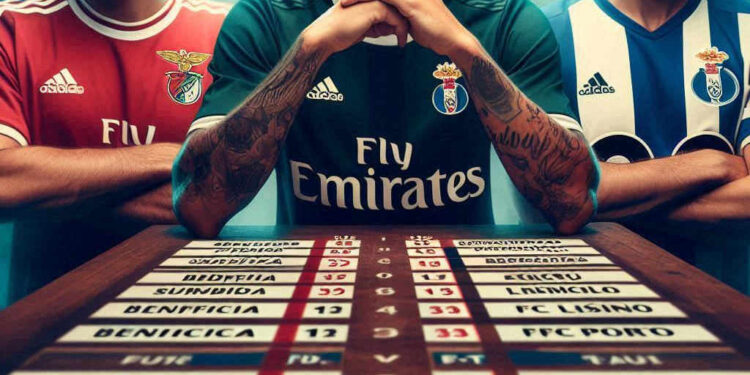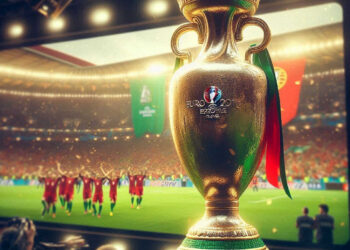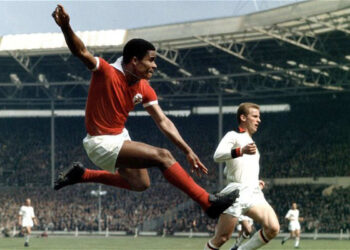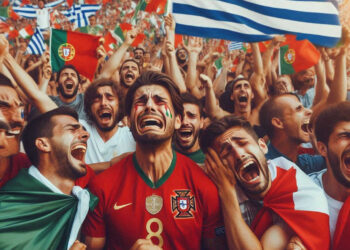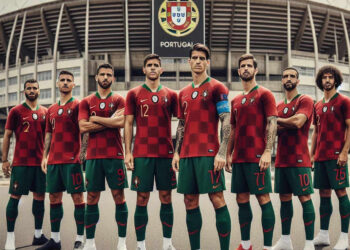The Rich and Vibrant History of Portuguese Football: A Journey Through Time
Portuguese football is a tapestry woven with passion, triumphs, heartbreaks, and unforgettable moments that have captured the hearts of millions both within Portugal and across the globe. From its humble beginnings to the illustrious achievements on the world stage, the history of Portuguese football is a story of resilience, talent, and cultural pride.
The Early Days: Football Finds Its Footing
Football was introduced to Portugal in the late 19th century by British expatriates. The first recorded game took place in 1875 in the city of Porto, where local enthusiasts and British sailors played matches that laid the foundation for the sport’s popularity. By the turn of the century, football clubs began to form, and the sport quickly gained traction among the Portuguese populace.
Foundation of the Portuguese Football Federation
In 1914, the Portuguese Football Federation (Federação Portuguesa de Futebol – FPF) was established, providing a structured framework for the development and organization of the sport in the country. The FPF played a crucial role in standardizing rules, organizing competitions, and promoting football at both grassroots and professional levels.
The Birth of National Competitions
The early 20th century saw the establishment of national competitions, including the Campeonato de Portugal in 1921, which served as the precursor to the modern-day Taça de Portugal (Portuguese Cup). This knockout competition quickly became a highlight of the football calendar, showcasing the talents of clubs from across the country.
The Rise of Portuguese Giants: Benfica, Sporting, and Porto
The mid-20th century marked the emergence of the “Big Three” clubs that would dominate Portuguese football for decades: S.L. Benfica, Sporting CP, and FC Porto. These clubs not only excelled domestically but also made their mark on the European stage. Benfica, in particular, achieved international acclaim by winning the European Cup (now the UEFA Champions League) in 1961 and 1962, led by the legendary Eusébio.
Eusébio: The Black Panther
Eusébio da Silva Ferreira, known simply as Eusébio, is one of the most iconic figures in Portuguese football history. Born in Mozambique, Eusébio moved to Portugal and joined Benfica in 1960. His explosive speed, powerful shots, and remarkable goal-scoring ability earned him the nickname “The Black Panther.” Eusébio’s impact on Portuguese football was profound, and he remains a symbol of excellence and inspiration for future generations.
The 1980s and 1990s: A Golden Era for Portuguese Clubs
The 1980s and 1990s witnessed a golden era for Portuguese clubs on the European stage. FC Porto clinched their first European Cup in 1987, under the management of Artur Jorge. This triumph was followed by another European Cup victory in 2004 under José Mourinho, cementing Porto’s status as a European powerhouse.
The National Team’s Evolution
While Portuguese clubs were achieving success in Europe, the national team also experienced significant growth. The Seleção, as the national team is affectionately known, made its first major tournament appearance in the 1966 World Cup, finishing in an impressive third place. Eusébio’s performance in the tournament, where he was the top scorer, remains legendary.
The Turn of the Millennium: A New Generation
The turn of the millennium brought a new generation of talent to the forefront of Portuguese football. Players like Luís Figo, Rui Costa, and Pauleta played pivotal roles in Portugal’s resurgence on the international stage. The national team’s performance in Euro 2004, hosted by Portugal, was a standout moment, although they fell short in the final against Greece.
Cristiano Ronaldo: A Global Icon
No discussion of Portuguese football history is complete without mentioning Cristiano Ronaldo. Hailing from the island of Madeira, Ronaldo’s meteoric rise to stardom began at Sporting CP and continued at Manchester United, Real Madrid, and Juventus. As the captain of the national team, Ronaldo has led Portugal to unprecedented success, including victory in the 2016 UEFA European Championship and the 2019 UEFA Nations League.
Modern Day: Continuation of Success
Portuguese football continues to thrive both domestically and internationally. The Primeira Liga remains a competitive battleground for clubs aiming to achieve glory, while the national team consistently competes at the highest level in major tournaments. Emerging talents such as João Félix and Bernardo Silva promise a bright future for Portuguese football.
Conclusion: A Legacy of Passion and Excellence
The history of Portuguese football is a testament to the country’s enduring passion for the sport. From the early days of British influence to the global impact of modern-day superstars, Portuguese football has left an indelible mark on the world of sport. As the beautiful game continues to evolve, the legacy of Portuguese football will undoubtedly inspire generations to come.







